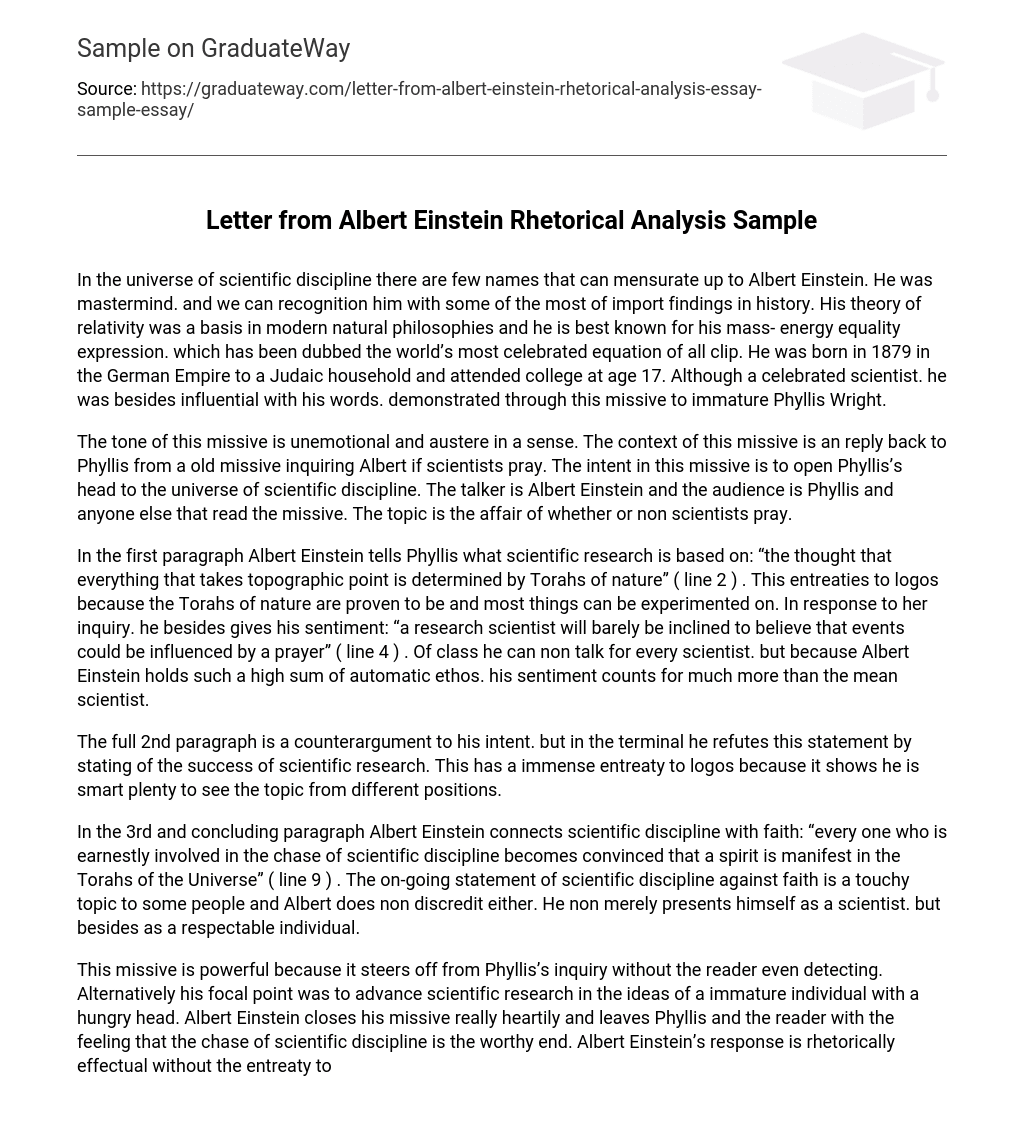In the universe of scientific discipline there are few names that can mensurate up to Albert Einstein. He was mastermind. and we can recognition him with some of the most of import findings in history. His theory of relativity was a basis in modern natural philosophies and he is best known for his mass- energy equality expression. which has been dubbed the world’s most celebrated equation of all clip. He was born in 1879 in the German Empire to a Judaic household and attended college at age 17. Although a celebrated scientist. he was besides influential with his words. demonstrated through this missive to immature Phyllis Wright.
The tone of this missive is unemotional and austere in a sense. The context of this missive is an reply back to Phyllis from a old missive inquiring Albert if scientists pray. The intent in this missive is to open Phyllis’s head to the universe of scientific discipline. The talker is Albert Einstein and the audience is Phyllis and anyone else that read the missive. The topic is the affair of whether or non scientists pray.
In the first paragraph Albert Einstein tells Phyllis what scientific research is based on: “the thought that everything that takes topographic point is determined by Torahs of nature” ( line 2 ) . This entreaties to logos because the Torahs of nature are proven to be and most things can be experimented on. In response to her inquiry. he besides gives his sentiment: “a research scientist will barely be inclined to believe that events could be influenced by a prayer” ( line 4 ) . Of class he can non talk for every scientist. but because Albert Einstein holds such a high sum of automatic ethos. his sentiment counts for much more than the mean scientist.
The full 2nd paragraph is a counterargument to his intent. but in the terminal he refutes this statement by stating of the success of scientific research. This has a immense entreaty to logos because it shows he is smart plenty to see the topic from different positions.
In the 3rd and concluding paragraph Albert Einstein connects scientific discipline with faith: “every one who is earnestly involved in the chase of scientific discipline becomes convinced that a spirit is manifest in the Torahs of the Universe” ( line 9 ) . The on-going statement of scientific discipline against faith is a touchy topic to some people and Albert does non discredit either. He non merely presents himself as a scientist. but besides as a respectable individual.
This missive is powerful because it steers off from Phyllis’s inquiry without the reader even detecting. Alternatively his focal point was to advance scientific research in the ideas of a immature individual with a hungry head. Albert Einstein closes his missive really heartily and leaves Phyllis and the reader with the feeling that the chase of scientific discipline is the worthy end. Albert Einstein’s response is rhetorically effectual without the entreaty to pathos. His intent has been fulfilled through the usage of Sons and ethos and really readily so. given his glare and stature as an influential scientist of his clip.





